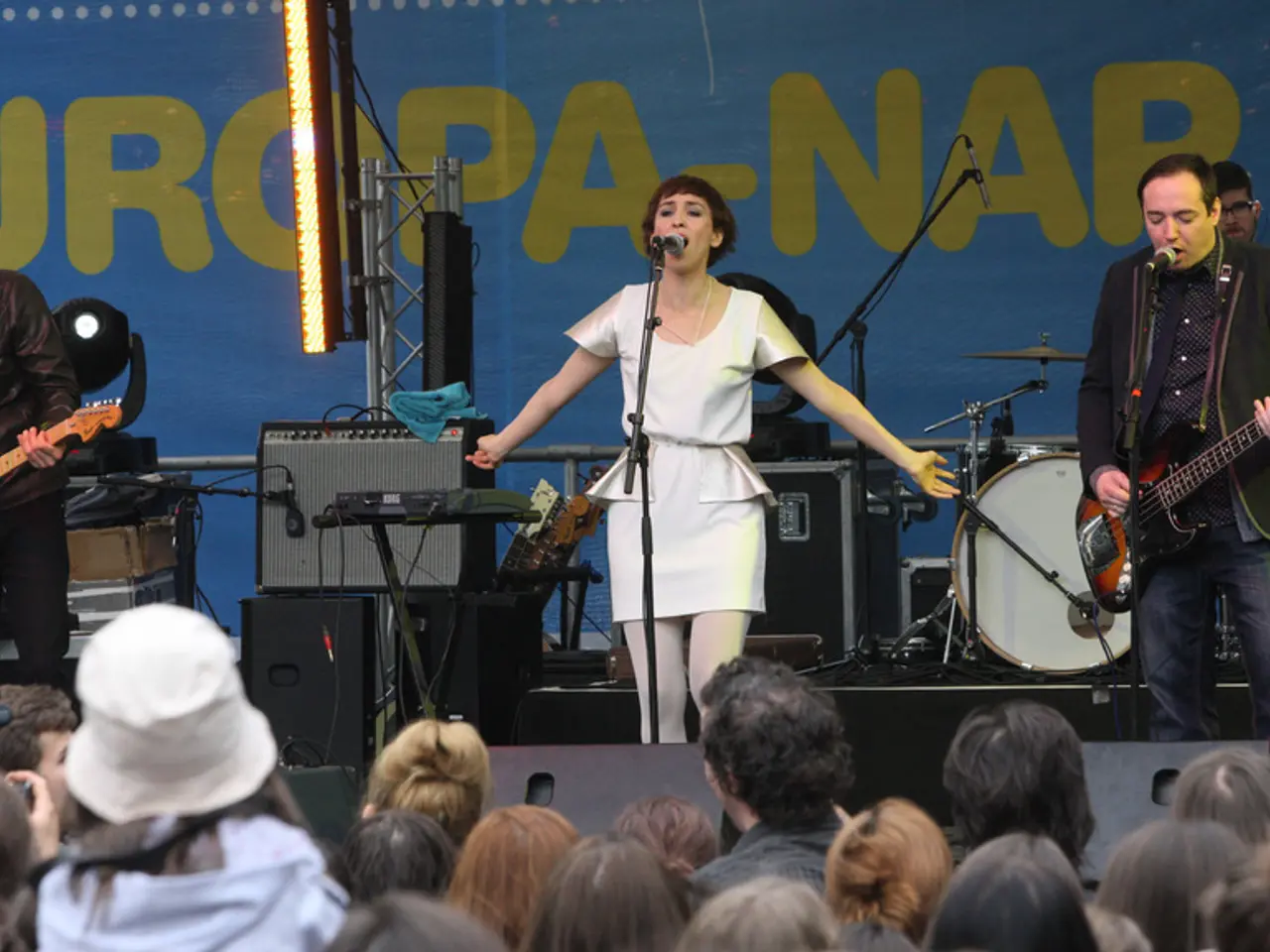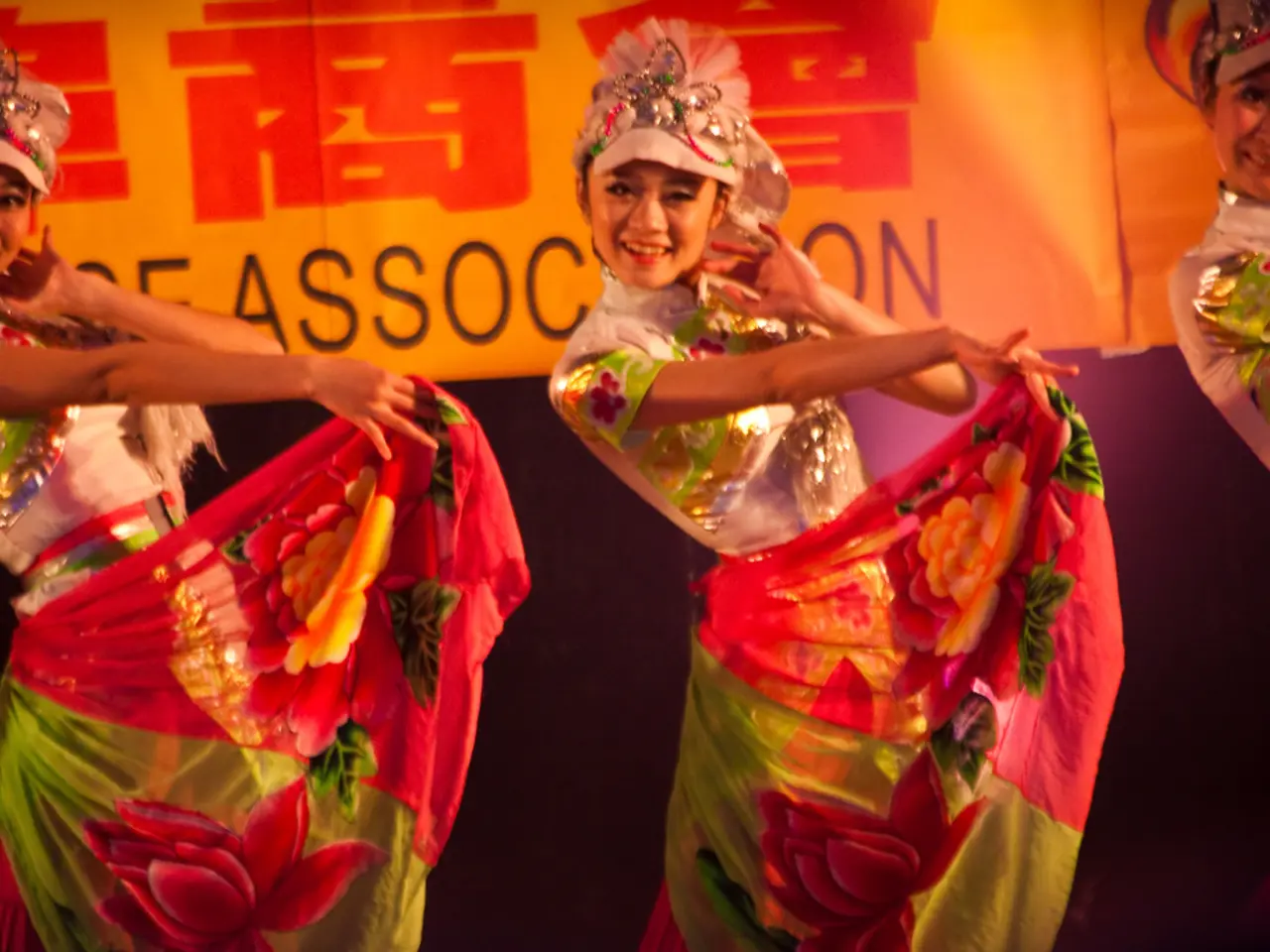Embark on the Enchantment of Kabukiza: The Captivating Spectacle of Ginza's Historic Theater
The Kabukiza Theater, nestled in the Kobikichō neighbourhood of Tokyo, has been a beacon for the art of kabuki for over 130 years. Established in 1889, this iconic stage has served as a platform for generations of renowned kabuki performers, embodying the history and cultural significance of the artform[1].
For kabuki actors, performing at Kabukiza is an experience imbued with emotion and tradition. The theatre's atmosphere, described as magical, carries an almost spiritual energy that both intimidates and empowers performers. Many actors have spoken of feeling the presence of past masters resonating within the space, inspiring them to deliver their best performances[1].
Kabukiza is more than just a stage; it is a cultural landmark that encapsulates the history of kabuki through various periods of Japanese history. From the Meiji Restoration, when Tokyo became the capital and kabuki modernized, to the present day, the theatre remains a vibrant hub for the art. Its location next to the 29-story Kabukiza Tower, added in 2013, represents the harmonious blend of tradition and modernity, reflecting kabuki's ongoing relevance in Japan's cultural life[1].
As the pinnacle stage for kabuki performances in Tokyo, Kabukiza is where the lineage of classical plays, including the revered "New Eighteen Favourite Kabuki Plays," continues to be performed. It provides a setting to uphold artistic standards passed down through centuries while reaching contemporary audiences. Its ongoing programs feature prominent actors and honour important rituals such as name successions, which are critical to kabuki traditions and actor lineages[3][4].
One such actor is Nakamura Takanosuke, who recently performed in two iconic kabuki plays at the Kabukiza stage. In May, he starred as Suruga Jirō in Kanjinchō, and in June, he appeared as Matsuōmaru in Sugawara Denju Tenarai Kagami[1]. Takanosuke recommends two products at the Kobukichō gift shop: tencha throat lozenges and Ekijutō, a Kyoto sweet[2].
The Kabukiza Theater offers visitors more than just performances. The Kabukiza Gallery provides an introduction to kabuki with colourful panels in both Japanese and English, making it a great stop for international visitors[5]. Along the fourth-floor corridor, visitors can view scale models of past Kabukiza buildings and displays featuring legendary actors[2].
The rooftop Japanese garden at Kabukiza is one of Ginza's best-kept secrets, featuring a stone lantern from the estate of the late-Edo, early-Meiji kabuki playwright Kawatake Mokuami[2]. The garden offers a serene space to reflect on the rich history and cultural significance of the Kabukiza Theater.
Jugetsudō tea shop, designed by Kuma Kengo, offers matcha and sweets in a modern, bamboo-lined space overlooking the garden[6]. Kobikichō Square beneath the Kabukiza theater is adorned with large paper lanterns and offers kabuki-themed goods, Japanese sweets, and crafts[7].
The Kabukiza Theater is located at 4-12-15 Ginza, Chūō, Tokyo and can be accessed directly from Exit 3, Higashi Ginza Station (Tokyo Metro Hibiya Line, Toei Asakusa Line), or by walking 5 minutes from Ginza Station on the Tokyo Metro Hibiya, Marunouchi, and Ginza Lines[7]. Single-act tickets for Kabukiza performances are available for ¥1,000 to ¥2,000 and can be reserved online from noon the day before the performance[7].
The Kabukiza Theater, with its rich history and cultural significance, continues to be a revered site that connects the past with the present and inspires kabuki actors to maintain and elevate their timeless art[1][3]. For those interested in experiencing the heart of kabuki performance and heritage in Tokyo, the Kabukiza Theater is a must-visit destination.
[1] https://www.kabukiza.co.jp/en/ [2] https://www.kabukiza.co.jp/en/spot/ [3] https://www.kabukiza.co.jp/en/history/ [4] https://www.kabukiza.co.jp/en/program/ [5] https://www.kabukiza.co.jp/en/gallery/ [6] https://jugetsudo.co.jp/ginza/ [7] https://www.kabukiza.co.jp/en/access/
- Visitors can connect with the timeless art of kabuki at the Kabukiza Theater by watching video footage and viewing photos of past performances in the Kabukiza Gallery.
- In addition to kabuki performances, the Kabukiza Theater also offers a lifestyle experience, with shops selling kabuki-themed souvenirs, Japanese sweets, and crafts, such as the Kobikicho Square beneath the theater.
- Kabuki actors find inspiration in the historic Kabukiza Theater, where they perform, share their art and connect with the legacy of past masters, embodying the blending of tradition and entertainment in Japanese sports and culture.






